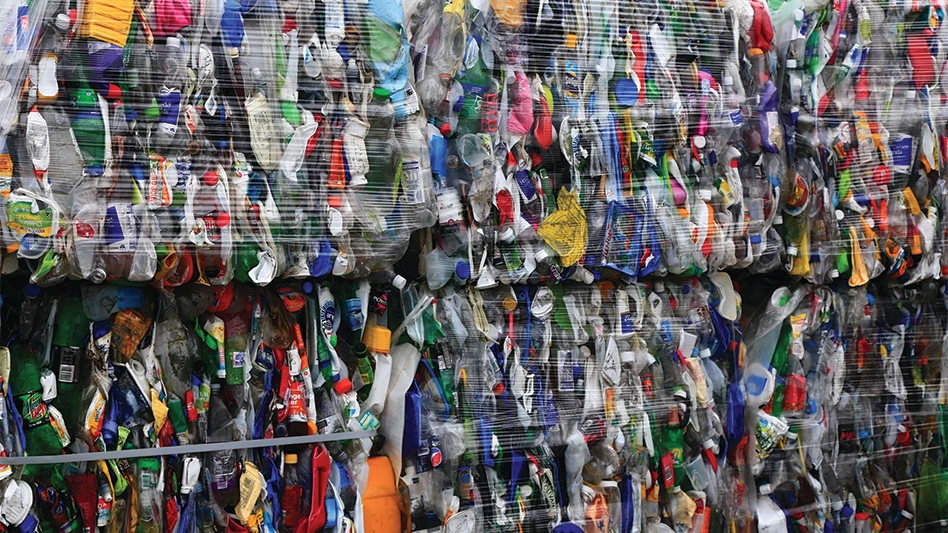
Photo courtesy of Eastman
Eastman, a specialty materials company based in Kingsport, Tennessee, has announced a long-term agreement with Nord Pal Plast SA, part of Italian multinational company Dentis Group, which specializes in the recovery and mechanical recycling of polyethylene terephthalate (PET) packaging scrap.
Through its mechanical recycling sites in France (Nord Pal Plast SA), Spain (PET Compania Para Su Reciclado) and Italy (Dentis Recycling Italy Srl), Dentis will provide 30,000 metric tons per year of rejected postconsumer PET scrap to Eastman. The companies say these materials currently lack a circular solution and will be recycled at Eastman’s molecular recycling facility in Port-Jerome-sur-Seine, Normandy, in France.
RELATED: Rumpke, Eastman partner to expand PET recycling
The companies say this partnership underscores the importance and complementary nature of both mechanical and molecular recycling processes in creating a more sustainable future. By combining their expertise and resources, the companies hope to achieve true circularity in the recycling process, maximizing the value of postconsumer materials and reducing environmental impact.
“We are very pleased to enter into this agreement with Eastman since our group is strongly committed to promoting a continuous transition from a linear to a circular economy in the packaging market,” Dentis/Nord Pal Plast CEO Corrado Dentis says. “This partnership contributes to create a standing valuable platform toward PET waste reduction, making mechanical and chemical recycling effectively complementary toward the achievements in European plastic recycling rates.”
Brad Lich, Eastman’s executive vice president and chief commercial officer, says his company is happy to enter into its agreement with Dentis and Nord Pal Plast, and that the move exemplifies Eastman’s commitment to collaboration and its dedication to working alongside mechanical recyclers to tackle the plastic waste crisis.
“This partnership is a testament to our shared goal of reducing plastic waste and advancing the circular economy,” Lich says. “With over 70 percent of the feedstock secured for our upcoming recycling plant in Normandy, including materials typically rejected by mechanical recyclers, this agreement represents a significant element of our feedstock availability and reinforces our commitment to sustainable solutions.”
RELATED: Eastman’s Naia Renew receives global recycling certification
Eastman’s announced molecular recycling facility in Normandy is set to become the world’s largest material-to-material molecular recycling plant, according to the company. At full capacity, after Phases 1 and 2, the facility is expected to have the capacity to recycle more than 200,000 tons of hard-to-recycle polyester scrap annually.
Eastman says its molecular recycling technologies allow for the breakdown of hard-to-recycle materials into their molecular building blocks. These building blocks are then reassembled to create first-quality materials without compromising performance. Eastman adds that its process enables the potentially infinite value of materials, keeping them in production cycle after cycle.
Latest from Recycling Today
- BMW Group, Encory launch 'direct recycling’ of batteries
- Loom Carbon, RTI International partner to scale textile recycling technology
- Goodwill Industries of West Michigan, American Glass Mosaics partner to divert glass from landfill
- CARI forms federal advocacy partnership
- Monthly packaging papers shipments down in November
- STEEL Act aims to enhance trade enforcement to prevent dumping of steel in the US
- San Francisco schools introduce compostable lunch trays
- Aduro graduates from Shell GameChanger program





